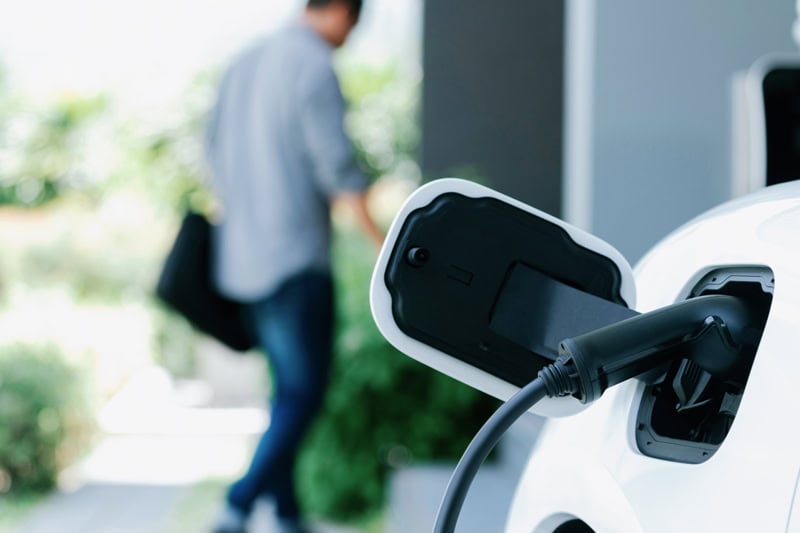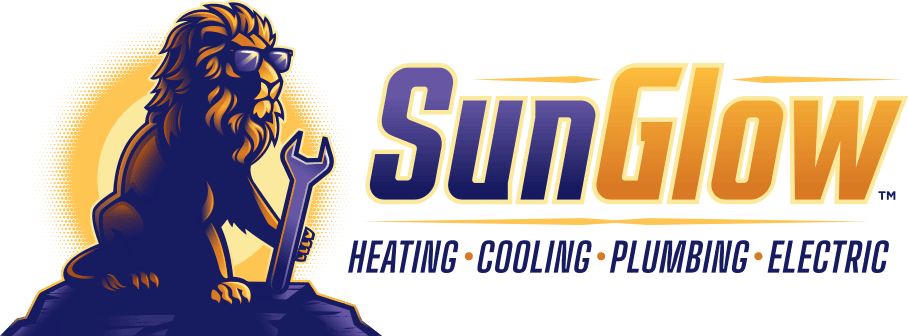EV Chargers: What Affects Their Lifespan and How to Install One

Electric vehicles (EVs) are becoming more popular than ever—and with them comes the need for convenient, reliable charging. Whether you’re a Portland, homeowner with a new EV in the driveway or a business owner thinking about offering EV charging to customers or employees, installing an EV charger is a smart investment.
But like any electrical equipment, EV chargers have a lifespan. They require the right environment, proper installation, and regular care to deliver consistent performance.
Our team at Sun Glow Home Services wants to walk you through what to expect from your EV charger, what can affect its longevity, and the key steps to getting one installed.
We’ll cover:
- How Long EV Chargers Last
- Types of EV Chargers
- Steps to Installing an EV Charger
- Commercial Chargers
- How to Extend the Life of Your EV Charger
How Long Do EV Chargers Last?
On average, a Level 2 EV charger will last between 8 to 12 years with normal residential use. Commercial chargers, which may see more frequent or high-volume use, typically last 5 to 10 years, depending on how well they’re maintained.
The lifespan of an EV charger depends on several factors:
- Installation Quality – A poorly installed charger is more likely to suffer from wear and electrical issues. Professional installation ensures the system is grounded, weather-protected, and up to code.
- Environment – Chargers installed in garages or covered areas tend to last longer than those exposed to the elements. Rain, heat, snow, and sun can take a toll on outdoor equipment over time.
- Usage Frequency – Just like any piece of equipment, the more you use it, the more wear it experiences. Residential chargers that are used once a day may last longer than commercial chargers used continuously throughout the day.
- Power Surges – Electrical surges, whether from lightning or inconsistent utility service, can damage internal components. A whole-home surge protector or a dedicated circuit breaker can help reduce this risk.
- Maintenance and Software Updates – Modern EV chargers often include firmware and connectivity features. Keeping your charger updated and occasionally inspected helps it stay reliable longer.
If your charger is showing signs of wear, like overheating, slow charging, or frequent errors, it may be time for a professional checkup or even a replacement.
Types of EV Chargers
For most Portland, homes and small businesses, a Level 2 charger offers the best combination of speed, cost, and accessibility. However, before you install an EV charger, it helps to understand all your options:
Level 1 EV Chargers
These come standard with most EVs and plug into a regular 120V outlet. They’re slow—adding about 3–5 miles of range per hour—but can work for low-mileage drivers.
Level 2 Chargers
The most popular choice for Portland, homes and businesses. These run on a 240V circuit and offer much faster charging—typically 20–30 miles of range per hour. Most EV owners choose to install a Level 2 charger for convenience and practicality.
DC Fast Chargers
These are typically used in public charging stations and commercial fleets. They charge EVs in a fraction of the time but are significantly more expensive and require higher power infrastructure.
Steps to Installing an EV Charger
Installing an EV charger isn’t just about plugging it in—it requires planning, permitting, and professional electrical work to ensure it’s safe and reliable. Here’s what the process typically looks like:
1. Choose Your Charger
Start by selecting the charger that fits your needs. Consider your daily mileage, the EV’s battery capacity, and whether the charger offers smart features like Wi-Fi connectivity or scheduling.
2. Assess Your Electrical Panel
Most Level 2 chargers require a dedicated 240V circuit. A licensed electrician from Sun Glow can assess your panel to make sure it has enough capacity. In some cases, you may need a panel upgrade or subpanel installation.
3. Pick a Location
For Portland, homes, the ideal location is often inside a garage or just outside it. For businesses, chargers should be placed where vehicles can park comfortably, with room for signage or cable management. Weatherproofing is essential for outdoor units.
4. Get the Necessary Permits
Most cities and municipalities require a permit to install a Level 2 EV charger. Your Sun Glow electrician can usually handle this as part of the installation process.
5. Hire a Licensed Electrician Near You
EV charger installation involves high-voltage wiring and needs to follow local electrical codes. A licensed professional will ensure everything is installed safely and efficiently. This includes running conduit, installing breakers, and mounting the charger.
6. Schedule Inspection (If Required)
After installation, a local building inspector may need to sign off on the work. This ensures it meets code and is safe for long-term use.
7. Test and Activate
Once everything is installed, your Sun Glow electrician will test the system to ensure it’s working properly. If your charger has smart features, they’ll help you connect it to your Wi-Fi and smartphone app.
EV Chargers for Businesses: A Smart Investment
If you own or manage a Portland, business—especially in industries like hospitality, retail, real estate, or office space—offering EV charging can be a major value-add. Not only does it attract customers and tenants, but it also shows a commitment to sustainability.
Commercial-grade chargers are designed for multiple users, higher usage rates, and often include features like:
- Payment processing
- Usage reporting
- Access controls
- Remote monitoring
Some local utility companies also offer rebates and incentives for installing commercial EV chargers, making it more affordable to get started.
How to Extend the Life of Your EV Charger
Just like your HVAC system or any other home appliance, a little attention goes a long way.
Here are a few tips to keep your EV charger working its best:
- Protect it from the elements – If possible, install your charger in a covered or climate-protected area.
- Use a surge protector – Especially in areas prone to power fluctuations.
- Keep software updated – Many chargers allow for remote firmware updates to improve performance and security.
- Watch for wear – If cables are frayed or the unit isn’t working properly, don’t wait—get it inspected.
- Schedule periodic inspections – Especially for commercial installations or if your charger is used frequently.
Ready to Install an EV Charger? Sun Glow Can Help
Whether you’re charging your EV at home or want to provide charging stations at your Portland, OR, business, a professionally installed EV charger makes life easier—and keeps you ahead of the curve. Our licensed technicians at Sun Glow Home Services can help you choose the right model, assess your electrical system, and handle the installation from start to finish.
If you’re ready to take the next step toward convenient, efficient EV charging, call us at 503-253-7789 or request service online today.
